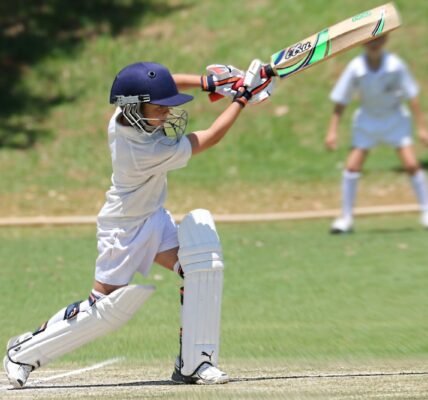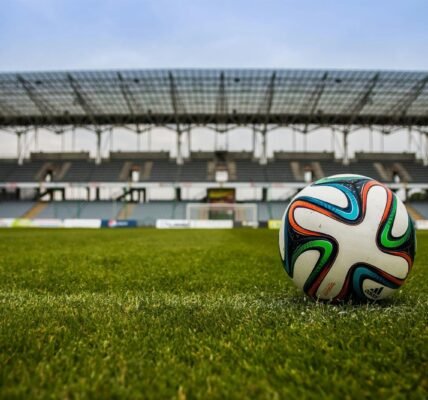North Korea’s participation in the Olympic Games has been a complex and often controversial topic. The country’s political system, isolationist policies, and human rights record have all influenced its involvement in the international sporting arena. This article explores the history of North Korea’s Olympic participation, its motivations, and the challenges it faces.
A History of Olympic Participation
North Korea’s Olympic journey began in 1964 when it sent a small delegation to the Summer Olympics in Tokyo. Since then, the country has participated in most Summer and Winter Olympic Games, with varying degrees of success.
Early Years: In the early years, North Korea’s Olympic participation was primarily focused on showcasing its political system and national pride. The country often fielded large delegations, emphasizing quantity over quality.
Focus on Sports: Over time, North Korea has shifted its focus towards achieving sporting success. The country has invested heavily in sports development, particularly in disciplines where it believes it has a competitive advantage.
Controversies and Withdrawals: North Korea’s participation in the Olympics has not been without controversy. The country has faced criticism for doping scandals, political protests, and human rights abuses. In some cases, North Korea has withdrawn from the Olympics or boycotted certain events.
Motivations for Olympic Participation
Political Propaganda: North Korea often uses the Olympics as a platform to promote its political system and national ideology. The country aims to portray itself as a strong and united nation capable of competing on the world stage.
Economic Benefits: Participation in the Olympics can provide economic benefits for North Korea, such as increased tourism and international recognition.
Sporting Success: North Korea’s athletes have achieved success in certain sports, such as wrestling, gymnastics, and weightlifting. These victories contribute to national pride and bolster the country’s image.
Challenges and Controversies
Doping Scandals: North Korea has faced allegations of doping on multiple occasions, leading to sanctions and disqualifications. These scandals have tarnished the country’s reputation and raised concerns about its commitment to fair play.
Human Rights Concerns: The international community has criticized North Korea’s human rights record, including its treatment of political prisoners and its suppression of freedom of expression. These concerns have led to calls for boycotts of the Olympics and sanctions against the country.
Political Protests: North Korean athletes have occasionally engaged in political protests during the Olympics, such as raising their fists or displaying messages of dissent. These actions have led to diplomatic tensions and sanctions.
The Future of North Korea’s Olympic Participation
The future of North Korea’s Olympic participation remains uncertain. The country’s political system, economic situation, and international relations will continue to influence its involvement in the global sporting arena.
Continued Participation: North Korea is likely to continue participating in the Olympics as a means of promoting its national interests and showcasing its sporting achievements.
Challenges and Opportunities: The country will face ongoing challenges, such as doping scandals, human rights concerns, and economic difficulties. However, there are also opportunities for North Korea to use the Olympics as a platform for positive change and international cooperation.
Balancing Politics and Sports: As North Korea seeks to balance its political goals with its sporting ambitions, it will be interesting to see how the country navigates the complexities of the Olympic Games.
The relationship between North Korea and the Olympics is a complex and multifaceted one. As the world continues to evolve, it remains to be seen how North Korea will adapt and navigate the challenges and opportunities presented by the international sporting stage.
FAQs
What is North Korea’s History at the Olympics?
North Korea has participated in the Olympic Games since 1976. While the country has sent athletes to both the Summer and Winter Olympics, its participation has been sporadic and often politically charged.
What Are North Korea’s Most Notable Olympic Moments?
1976 Summer Olympics: North Korea made its Olympic debut in Montreal, Canada.
1992 Winter Olympics: The country won its first-ever Olympic gold medal in Alpine skiing.
2000 Summer Olympics: North Korean gymnast Hyon Jong-hui won the gold medal in the women’s vault.
2018 Winter Olympics: North Korea participated in the joint Korean team, a historic moment that symbolized unity between the two Koreas.
Why Does North Korea Participate in the Olympics?
North Korea’s participation in the Olympics is often seen as a way to showcase its national pride and international standing. It can also be a platform for political messaging and diplomacy.
What Are the Challenges Faced by North Korean Athletes?
North Korean athletes face numerous challenges, including:
Limited training resources: Due to economic sanctions and isolation, North Korean athletes may have limited access to training facilities and equipment.
Political pressures: The North Korean government may exert significant pressure on athletes to perform well and represent the country positively.
Language barriers: Many North Korean athletes may struggle with language barriers when competing abroad.
How Does North Korea Fund Its Olympic Team?
North Korea’s Olympic team is primarily funded by the government. The country may also receive financial support from international sports organizations.
How Does North Korea’s Participation in the Olympics Affect Its Relationship with Other Countries?
North Korea’s participation in the Olympics can sometimes lead to improved relations with other countries. However, it can also be a source of tension, particularly if the country’s actions are seen as provocative or disrespectful.
What Are the Future Prospects for North Korea’s Olympic Participation?
It is difficult to predict North Korea’s future participation in the Olympics. The country’s decision to participate often depends on political factors and its relationship with the International Olympic Committee (IOC).
Have There Been Any Controversies Surrounding North Korea’s Olympic Participation?
Yes, North Korea’s Olympic participation has been marred by controversies. These include allegations of doping, political stunts, and human rights abuses.
Does North Korea Celebrate Olympic Victories?
Yes, North Korea celebrates Olympic victories with great fanfare. The government often rewards successful athletes with medals, cash prizes, and other honors.
How Does North Korea’s Olympic Team Compare to Other Countries?
North Korea’s Olympic team is relatively small compared to other major sporting nations. However, the country has achieved notable success in certain sports, particularly gymnastics and weightlifting.
Would you like to know more about a specific aspect of North Korea’s Olympic history or participation?
To read more, Click Here.




